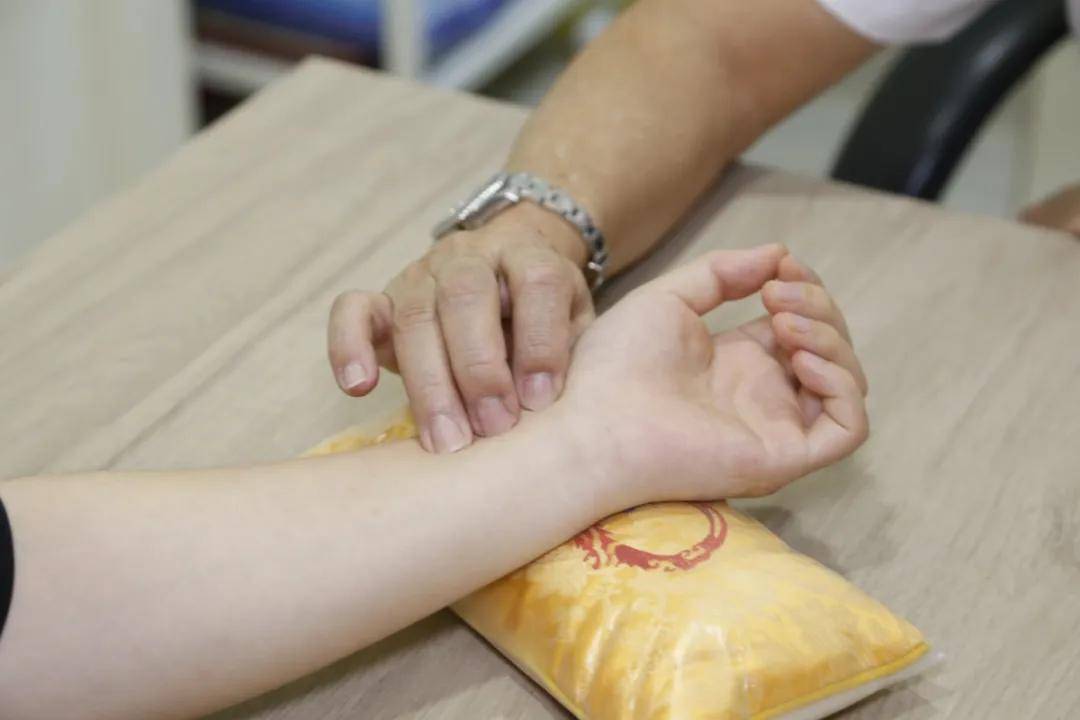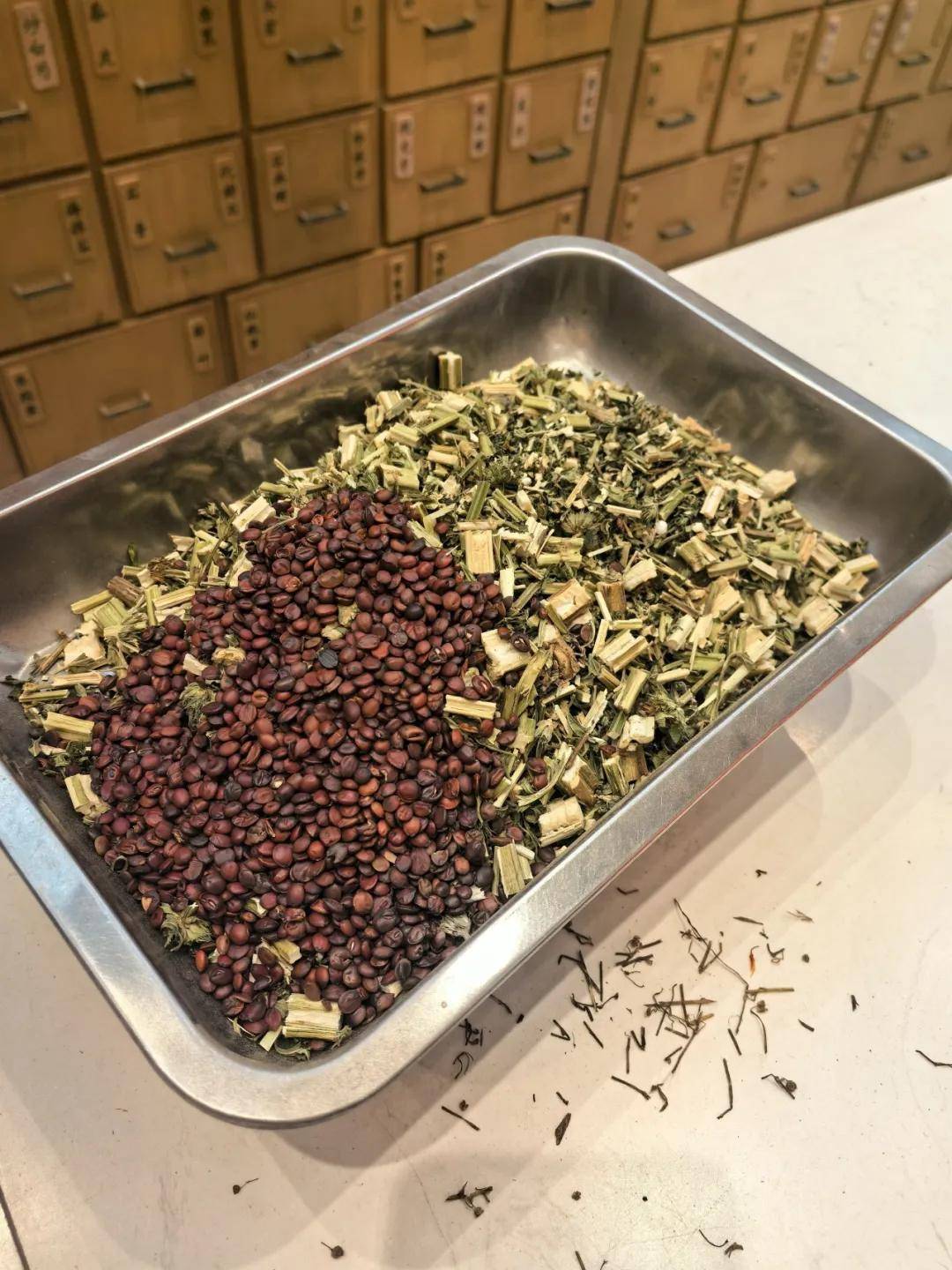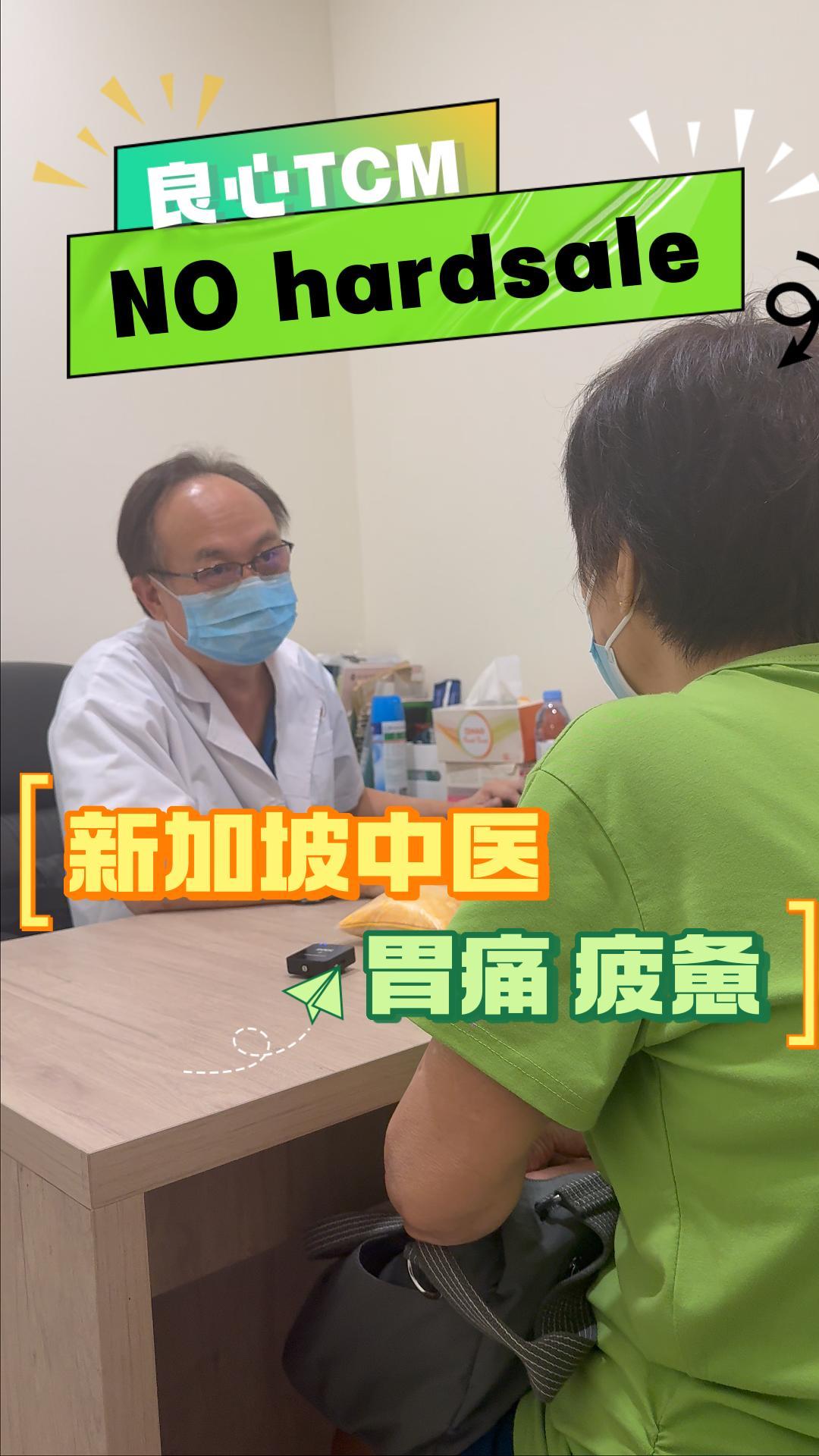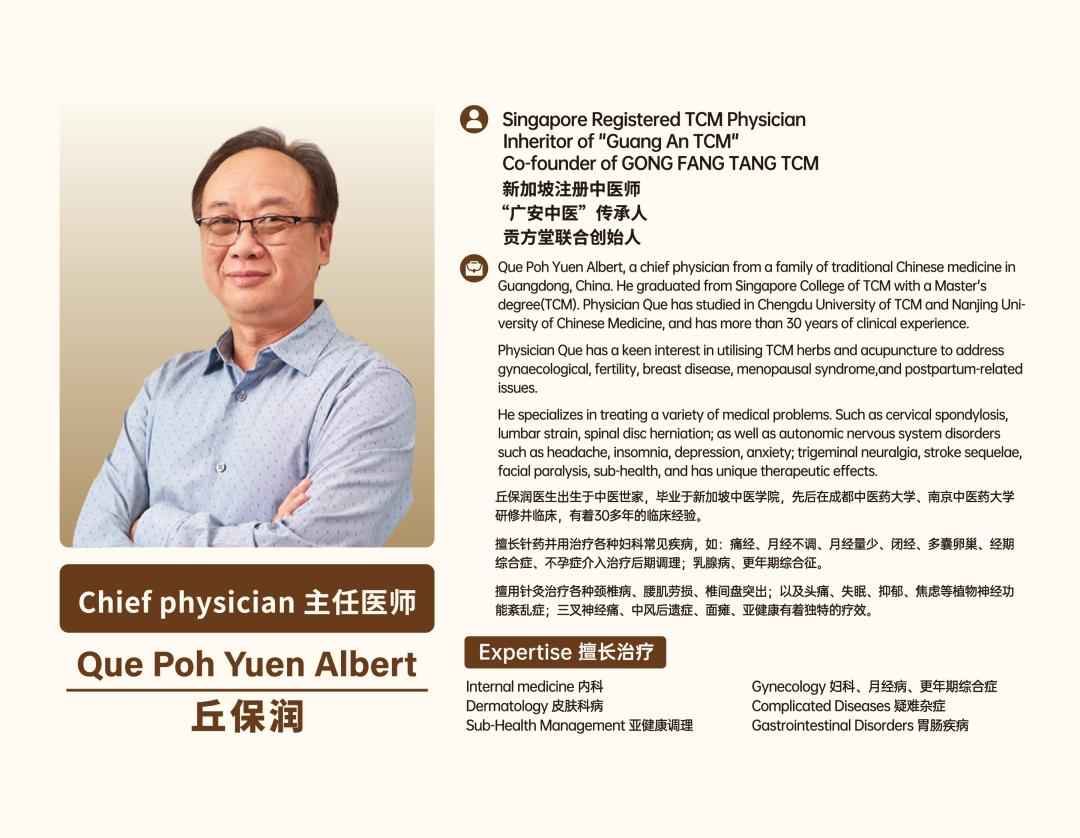- Physicians
- Clinics
- TCM
- Western GP
-
Fees
-
Deals & Privileges
- About & Resources
- Contact Us
As the saying goes, "Nine out of ten people have stomach problems," meaning that among ten people, nine suffer from gastric issues.
Some people experience stomach discomfort after eating raw or cold foods, while others feel a cold sensation in their stomach when the weather turns chilly—these are signs of stomach cold (Wei Han).
Sometimes, relief can be found through moxibustion, using a hot water bottle, or warming the area with hands.
If the discomfort persists, medication may be necessary.
Dr. Que Poh Yuen Albert, a TCM expert at Singapore Gong Fang Tang, explains that common remedies for stomach cold typically involve warming and dispersing cold herbs, such as:
Aconite (Fu Zi)
Dried Ginger (Gan Jiang)
Cinnamon (Rou Gui)
Galangal (Gao Liang Jiang)
Codonopsis (Dang Shen)
Astragalus (Huang Qi)
Patients with typical symptoms may also opt for ready-made Chinese herbal formulas.
What are the symptoms of cold-type stomach pain?
Cold pain in the stomach or abdomen after consuming cold or raw foods
Relief when pressing the area with hands or drinking warm liquids
Worsening with exposure to cold
May be accompanied by loss of appetite, loose stools, and clear, frequent urination
For cold-induced stomach pain caused by eating chilled foods or abdominal exposure to cold, a Chinese patent medicine called Ding Gui Wen Wei Capsule/Powder (Clove & Cinnamon Warming Stomach Formula) can help.
Ingredients:
Clove (Ding Xiang)
Cinnamon (Rou Gui)
Functions:
Warms the stomach and dispels cold
Promotes qi circulation to relieve pain
Used for cold-type epigastric pain and abdominal pain

Clove (Ding Xiang) warms the middle burner, lowers rebellious qi, and supports kidney yang. It is used for spleen-stomach deficiency cold, hiccups, vomiting, poor appetite, diarrhea, and cold pain in the chest and abdomen.
Cinnamon (Rou Gui) reinforces fire (yang energy), guides floating fire back to its source, disperses cold to relieve pain, and warms the meridians. It is used for cold pain in the chest and abdomen, deficiency-cold vomiting and diarrhea, and cold-type hernia pain.
Clove and cinnamon work synergistically, balancing and enhancing each other’s effects.
Ding Gui Wen Wei Capsule (Clove & Cinnamon Warming Stomach Formula) warms the stomach, dispels cold, promotes qi circulation, and relieves pain.
For external use (transdermal absorption): Provides fast symptom relief.
For oral administration: Offers long-term regulation to consolidate treatment effects.
Applications:
Stomach cold, abdominal pain, epigastric pain
Highly effective for infantile diarrhea
Improves indigestion and poor appetite
Topical application helps calm restless children at night
For abdominal pain, diarrhea, or stomach discomfort, Ding Gui Wen Wei Capsule (oral + external use) shows noticeable effects within 10 minutes.

Medical Case Record
Patient: Xue, Male, 18 years old
Chief Complaint: Epigastric pain persisting for over four years.
History:
Due to lack of proper care during childhood, the patient had irregular eating habits, consuming food without regard to temperature or portion control. Since October of last year, he began experiencing epigastric pain, yet he continued neglecting his diet and never sought formal treatment. He only took painkillers during acute episodes. Currently, the pain has worsened.
Diagnosis:
Severe, unbearable epigastric pain, aggravated after eating or when hungry.
Worsens upon exposure to cold.
Stabbing pain in the upper abdomen, occasionally accompanied by:
Belching
Acid regurgitation
Heartburn
Abdominal distension
Clear and frequent urination, tarry stools (melena).
Pale complexion, emaciated physique, lethargy.
Thick, white, greasy tongue coating.
TCM Pattern Differentiation:
Cold congealing and qi stagnation
Spleen yang failing to transport
Collateral damage (blood stasis)
Treatment Principle:
Warm the middle burner and dispel cold
Activate blood circulation and resolve stasis
Prescription: Modified Wen Wei Tang (Warming Stomach Decoction)
White Peony Root (Bai Shao) 15g
Chinese Angelica (Dang Gui) 10g
Dried Ginger (Gan Jiang) 20g
Prepared Aconite (Zhi Fu Zi) 10g
Cinnamon Twig (Gui Zhi) 20g
Evodia Fruit (Wu Zhu Yu) 15g
Peach Seed (Tao Ren) 10g
Safflower (Hong Hua) 6g
Atractylodes (Cang Zhu) 10g
Magnolia Bark (Hou Po) 10g
Roasted Bitter Orange (Zhi Ke) 6g
Poppy Pod (Ying Su Ke) 6g
Codonopsis (Dang Shen) 30g
Second Consultation:
After taking 10 doses, the pain significantly reduced, appetite slightly improved, and energy levels rose. Other symptoms also showed varying degrees of relief. The spleen pulse was tight but not excessive. The prescription was continued for 20 more doses, with adjustments:
Aconite reduced to 5g
Dried Ginger reduced to 15g
Third Consultation:
Epigastric pain nearly disappeared.
Appetite greatly improved.
Complexion turned rosy.
Limbs regained warmth.

In summary, Traditional Chinese Medicine (TCM) offers extensive experience and unique methods in both preventing and treating stomach pain.
If you suffer from stomach discomfort, you may consider trying TCM approaches.
